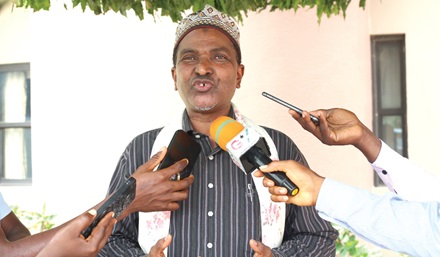The President of the Ghana National Association of Cattle Farmers (GNACAF), Hanafi Sonde, has called for peaceful coexistence between cattle farmers and crop farmers in the country.
He said the farmer-herder conflict had raged for far too long and required a holistic solution.
He indicated that one of the major challenges had been the lack of implementation of relevant regional and national policies to curb the recurring herder-farmer conflicts.
Mr Sonde was speaking at an inaugural cross-border multi-stakeholder dialogue workshop on livestock in Accra yesterday.
The event was organised by RESEAU Billital Maroobe (RBM), an association of African pastoralists and livestock dealers.
The workshop formed part of RBM’s continued commitment to peace, pastoral security, and the strengthening of social cohesion in the border areas of West Africa.
It was organised in collaboration with the Ghana National Association of Cattle Farmers (GNACAF) and the Ghana Cattle Ranching and Transhumance Committee (GCRTC).
It aims to launch a process dedicated to creating an inclusive space for dialogue involving civil society actors, the Ghana Immigration Service, National Security, the Ministry of Food and Agriculture (MoFA), as well as representatives of pastoralists and agro-pastoralist communities.
The workshop brought together key stakeholders from Accra, Upper East, Upper West and Savannah regions.
It will present different steps and methodology of the process, results of two diagnostics about the challenges related to pastoralism in these regions, and offer participants a module on pastoralism and social cohesion.
Peaceful coexistence
Mr Sonde said the ECOWAS Protocol on Transhumance contained very relevant solutions to the cross-border challenges with livestock farming in the sub-region.
“We believe that just with the implementation of the ECOWAS Protocol, the problem of the cross-border issues will be a thing of the past, looking at the content of this very document.
“The cross-border transhumance problems are just between 30 to 40 per cent of the internal or domestic transhumance issues which constitute between 70 to 75 per cent,” he said.
He said the inability to identify cattle responsible for farm destruction had over the years made it difficult to hold some persons accountable for the damage caused to crops.
As an internal measure, he stated that the GNACAF, GCRTC and other stakeholders had designed some documents detailing some solutions to the challenges fueling the herder-farmer conflict.
He explained that the said document suggested movement control of the animals, identifying the cattle owners and areas their animal grazed to help in the easy and faster resolution of problems involving the destruction of farms by cattle.
Proposals and law Enforcement
The GNACAF President also proposed the establishment of a committee at the district level, comprising representatives from the district assembly, Ministry of Agriculture, security agencies, and traditional councils, to identify cattle owners and crop farmers to resolve conflicts peacefully.
Mr Sonde also advocated a gradual adoption of intensive and semi-intensive grazing practices, which would involve developing pastures and feed formulations to reduce the number of animals roaming freely.
He emphasised that while there were many proposed solutions, implementation remained a challenge, and as such rules and regulations needed to be enforced to ensure compliance.

